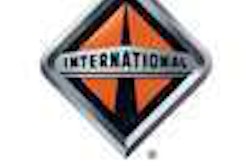C.R. England selected Mobileye’s (www.mobileye.com) AWS-4000 camera-based driver assistance system for its entire fleet. The system includes lane departure warning, forward collision warning and headway monitoring and warning functionality.
Swift Transportation selected Precision Pulmonary Diagnostics as its sleep apnea treatment provider. PPD says its program is aimed at identifying and treating drivers with a high probability of sleep apnea, leading to improved driver health and enhanced highway safety.
U.S. Department of Transportation awarded nearly $3.4 million to eight states to improve safety and reduce congestion during bad weather through more timely information about road conditions. Iowa, Illinois, Indiana, South Dakota, North Dakota, Montana, Idaho and Minnesota will receive DOT funds.
Wyoming is dropping its speed limit from 75 to 65 mph through April 15, 2009, for all traffic on Interstate 80 from Laramie to Rawlins because the 52-mile stretch is prone to winter blizzard conditions. Officials also are installing variable speed limit message boards along the stretch; during hazardous weather, the speed limit could go as low as 35 mph.
A. Duie Pyle driver Yevgeniy “Gene” Bortniker received the Commercial Vehicle Safety Alliance’s “Saved by the Belt” Award, which recognizes CMV drivers whose lives were saved or injuries reduced as a result of wearing a safety belt.
The Federal Motor Carrier Safety Administration in late October announced that it had accepted the State of Massachusetts’ periodic inspection (PI) program for commercial motor vehicles (CMVs). After reviewing the state’s program, FMCSA said it has determined it to be comparable to, or as effective as, the federal PI requirements contained in the Federal Motor Carrier Safety Regulations (FMCSRs). The state requires CMVs to be inspected annually or within seven days of registration for newly acquired vehicles.
With the addition of Massachusetts, 22 states and the District of Columbia maintain PI programs accepted by FMCSA. In addition, the Alabama Liquefied Petroleum Gas Board, 10 Canadian provinces and one Canadian territory have approved PI programs. Two states have been removed from the previous list of approved programs: Arkansas no longer has a periodic inspection program for buses comparable to, or as effective as, the federal PI program; and Oklahoma has repealed its inspection requirements.
KellerOnline debuts new look
J.J. Keller & Associates has redesigned its KellerOnline (www.kelleronline.com) online safety management tool to provide subscribers with new features. A Search Box has been added to help subscribers quickly find what they are seeking, and a new navigation feature helps subscribers keep track of their location during their visit to KellerOnline.
Based on feedback, the Safety Management Process within KellerOnline has been renamed My Safety Program. It continues to provide customers with tools to create their own programs for managing safety and health, developing and setting measurable safety goals, building action plans and comparing their safety efforts with other companies, J.J. Keller says.
KellerOnline also has enhanced existing features, which include improved recordkeeping functionality and more reporting options, the company says; safety professionals now have the ability to quickly enroll employees in training classes and share their data with other KellerOnline users from their company. Several training topics also have been added to the service, along with real-life training stories.
DriveCam seeks windshield exemption
DriveCam Inc. (www.drivecam.com) has asked the Federal Motor Carrier Safety Administration for an exemption to allow it to place video event recorders at the top of the windshields on commercial motor vehicles. The exemption would allow any motor carrier using DriveCam devices to mount the recorders lower in the windshield than what is currently permitted by the agency’s regulations. Such placement would give the video recorder the best view of the driver, passengers or outside area, maximizing the ability to improve driver behavior and understand the root causes of collisions, DriveCam says. For more information, go to www.regulations.gov and search FMCSA-2008-0312.
Preventable or Not: Doe’s rig gets sandwiched
T’was a moonless midnight and frigid as a snowcone on North Dakota’s rural sleet-slicked U.S. 2. An icy wind howled past the CB antenna vice-gripped to the West Coast mirror frame of John Doe’s long-nose conventional twin-trailer rig. His discomfort was about to increase dramatically, smack-dab in the middle of a railroad overpass, one mile ahead.
Black ice had caused Jimmy Joe Johnson’s Toyota Highlander to spin-out and become stuck, partially blocking both lanes. Attempting to decelerate quickly from 55 mph and steer clear, Doe caused his rear trailer to overturn, jackknifed, then watched in horror as his lead trailer fell on top of the SUV with an earth-shattering “WHUMP!” The shaken but miraculously uninjured Johnson materialized from the wreckage and graciously helped Doe out of his cab.
Things rapidly turned from bad to worse when Doe and Johnson both noticed another set of headlights approaching. An ill-fated intercity bus arrived on the accident scene, braked hard, slid and crashed into the landing gear of Doe’s overturned rear trailer! The bus windshield shattered, but thankfully nobody sustained injuries.
Because Doe blamed everything on the black ice, he contested the “preventable accident” ruling of his fleet’s safety director, and the National Safety Council’s Accident Review Committee was asked to settle the dispute. NSC upheld the “preventable” ruling, noting that Doe should have reduced his speed in anticipation of the bridge being super-slick.









